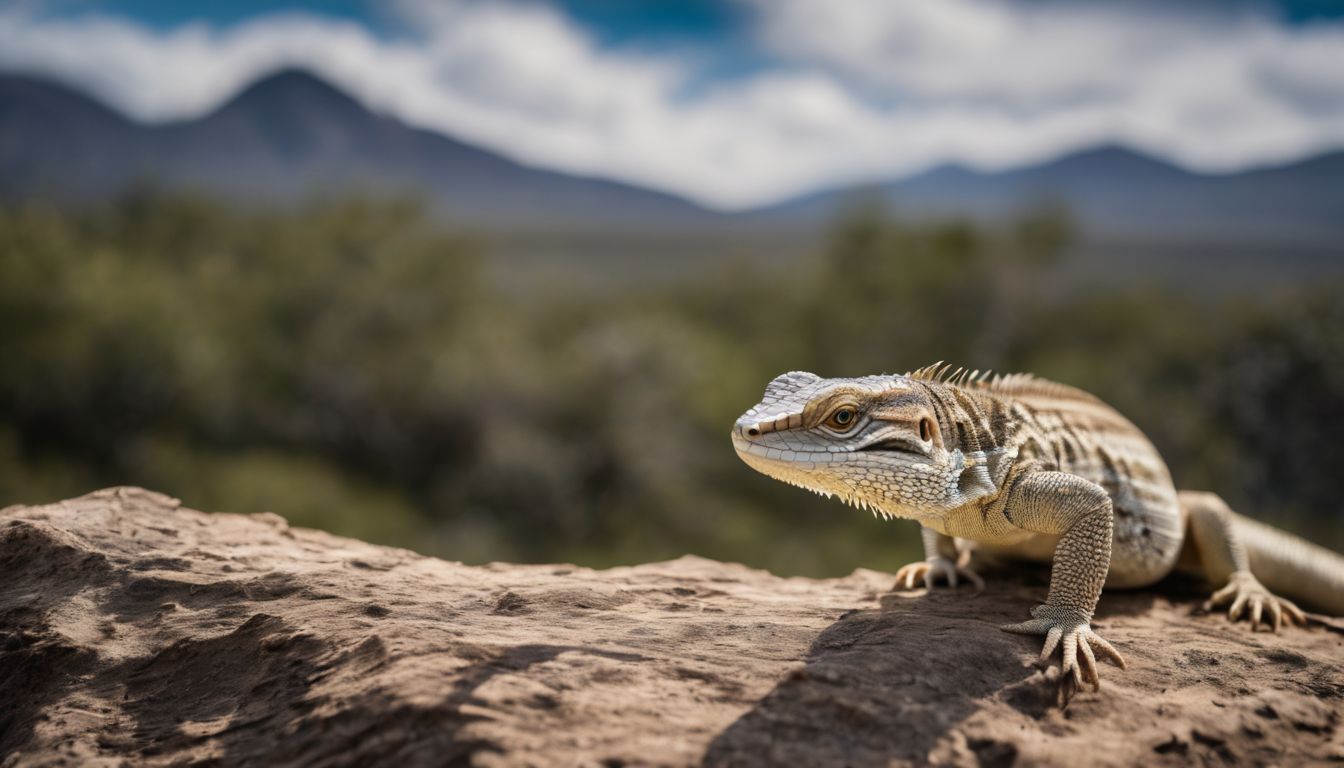Do you ever wonder if the lizards basking in the Florida sun could be poisonous? While most species are harmless, there are a handful that can pose risks to humans and pets. Our detailed guide will help you identify these potentially dangerous creatures and advise you on what precautions to take.
Ready to discover the answer to the question, ‘are lizards in Florida poisonous’? Let’s dive in!
Key Takeaways
- Not all lizards in Florida are poisonous, but some species can be harmful to humans and pets.
- The Gila monster is the only venomous lizard in Florida, and its bite can cause serious health problems.
- Taking precautions such as keeping a safe distance, avoiding handling lizards, and wearing protective clothing can help prevent encounters with harmful species.
- While most lizards don’t pose a significant risk to pets, it’s still important to supervise them and take steps to protect them from potential encounters.
Harmful Lizards in Florida
Florida is home to several species of lizards, some of which are poisonous.
Poisonous species in Florida
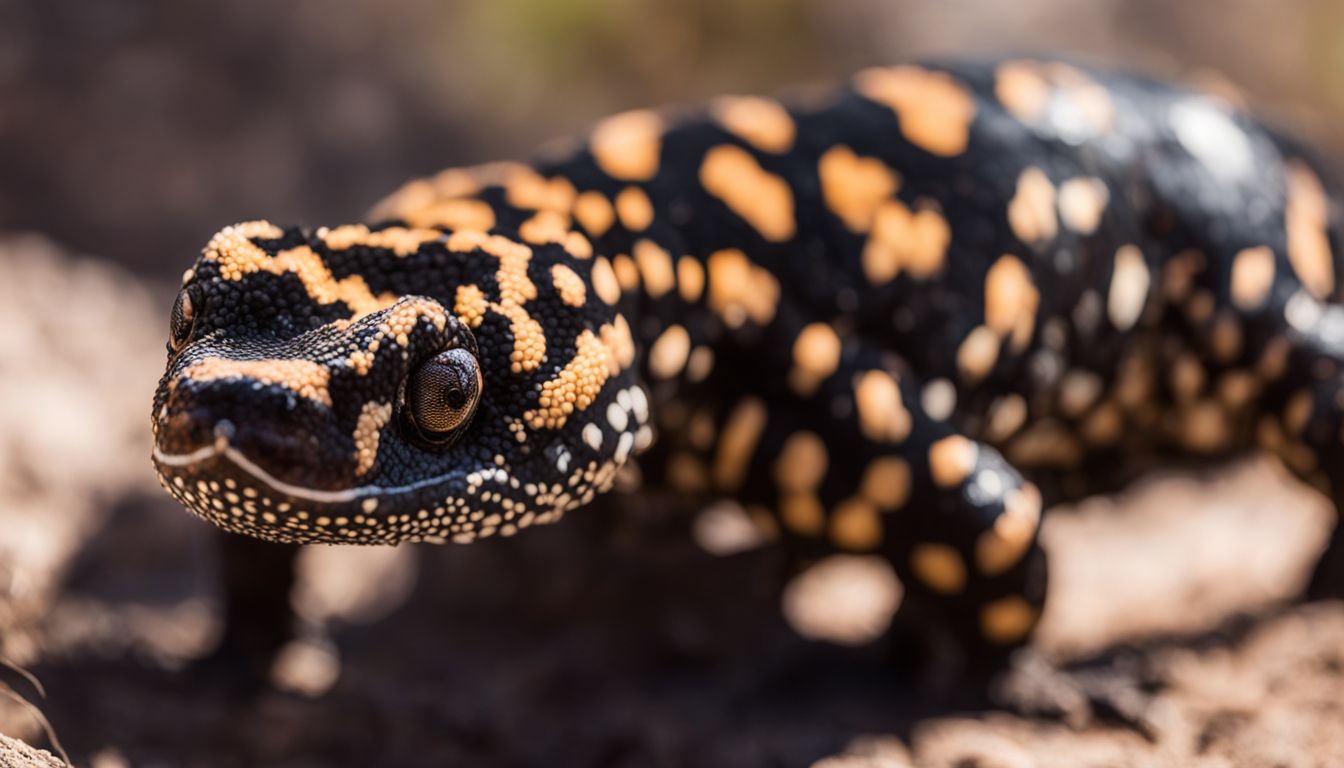
Living in Florida means sharing your space with all kinds of lizards. Some of these lizards can be harmful. Here are the ones you should keep an eye out for:
- The Gila monster is a lizard that, although native to Arizona & Mexico, can also be found in Florida. It puts poison into its bites.
- Not all lizards have poison, but some carry germs in their spit. If they bite you, it can lead to an infection.
- Even though most lizards in Florida are safe, it’s good to know which ones can harm you.
Identifying poisonous lizards
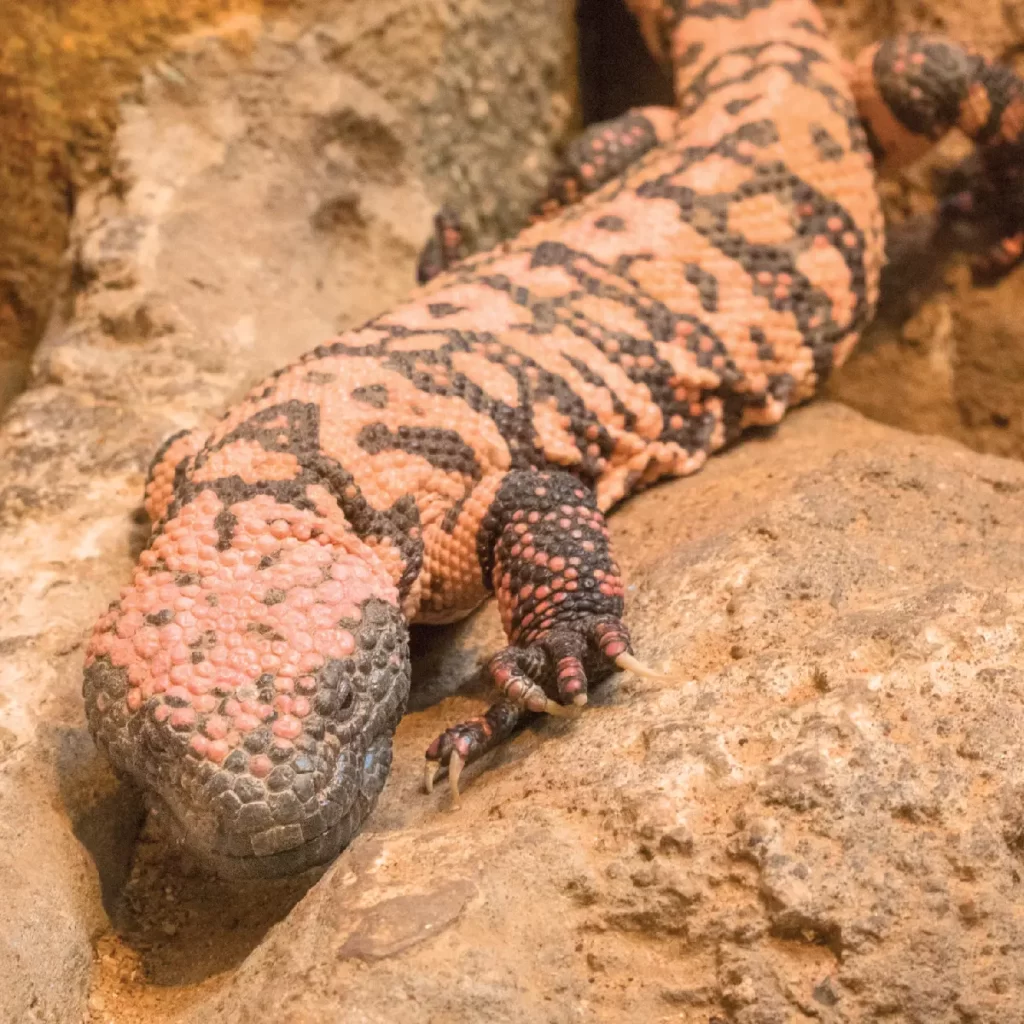
Look for the Gila monster if you want to spot a venomous lizard in Florida. This lizard has a stocky body with bright colors on its bumpy skin. They have short, fat tails and slow moves.
The toxic parts of it are the limbs.
But keep away from this lizard! Its venom can harm people. Most lizards in Florida are not harmful, even though they may look scary. It is only the Gila monster that brings danger due to its poison.
If you see one, stay back and let it be.
Common species to watch out for
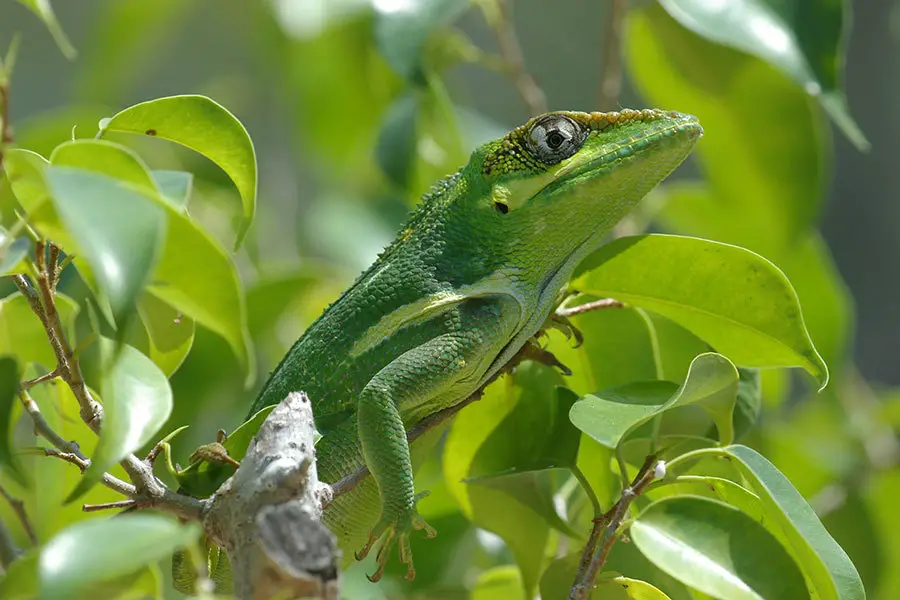
You need to keep your eyes open for certain types of lizards in Florida.
- First, the Cuban Knight Anole is a major bother.
- The Green Iguana may also cause harm.
- Another one is the Argentine Black and White Tegu.
- Watch out for the Tokay too.
- Among native species, Florida worm lizard is seen often.
- You may cross paths with the Eastern glass lizard as well.
- Don’t forget about the Southern green stinkhorn either.
- Central American whiptail also finds its home here.
- Recently, we see a lot more of this invasive “Godzilla” lizard!
Dangers and Impact on Humans
Poisonous lizards in Florida pose serious health risks to humans.
Health risks associated with poisonous lizards
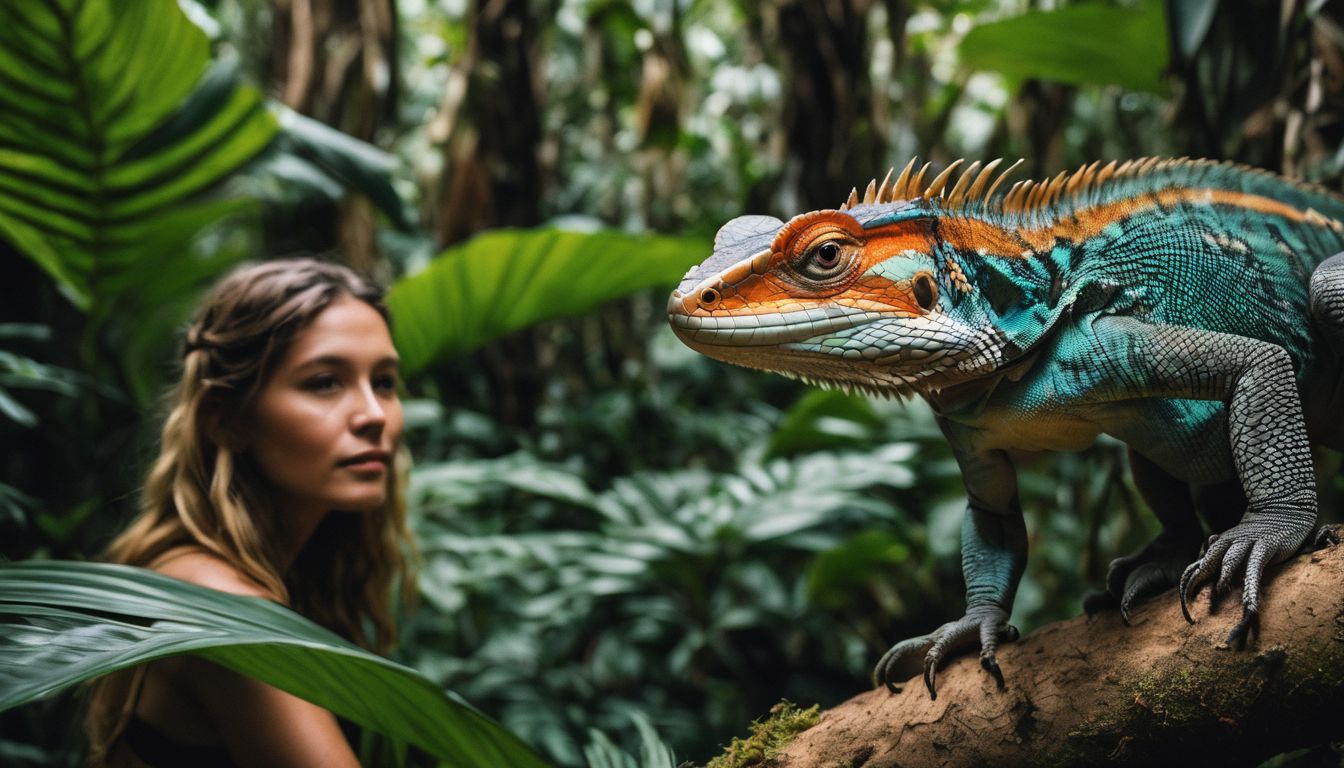
In Florida, there are no poisonous lizards that can harm humans. Most lizard species are not poisonous and their bites usually do not cause serious health problems. So, you don’t have to worry too much if you encounter a lizard in your backyard or while exploring nature.
However, it’s always a good idea to avoid handling them because they might try to defend themselves and may bite if they feel threatened. Remember, prevention is key!
Potential consequences of a lizard bite
If you get bitten by a lizard in Florida, there could be some serious consequences. Lizards like the Gila monster and the beaded lizard have venom that can make you very sick. These bites can cause things like pain, swelling, and even trouble breathing.
It’s important to seek medical help right away if you’re bitten by a lizard, especially if you start feeling really bad. Understanding the risks of lizard bites can help keep you safe if you ever encounter one.
Precautions and safety measures

To stay safe from harmful lizards in Florida, here are some precautions and safety measures you should take:
- Keep a safe distance from any lizard you encounter, especially if you’re unsure if it’s poisonous or not.
- Avoid handling or trying to catch lizards, as they may bite when feeling threatened.
- Teach children to appreciate lizards from afar and not to touch or approach them.
- Wear closed-toe shoes and long pants when walking in areas known to have lizards.
- If you have a lizard in your home or yard that you believe is dangerous, contact professionals for removal instead of trying to handle it yourself.
- Be cautious near bodies of water where lizards may be present, as they can swim and may bite if provoked.
- If you own pets, keep them on a leash when outdoors and supervise their interactions with lizards.
- In the event of a lizard bite or scratch, clean the wound thoroughly with soap and water and seek medical attention as soon as possible.
Harmful Lizards and Pets
Pets can be at risk for health issues if they encounter poisonous lizards, so it’s crucial to know how to protect them.
Health risks for dogs and cats
Dogs and cats can face health risks if they come into contact with lizards in Florida. While lizard poisoning is rare in dogs, it’s still important to be aware that some lizards carry poison on their skin.
This means that if a dog or cat eats a lizard, there is a small chance they could get sick. However, the good news is that most lizards don’t have enough poison to seriously harm a dog if eaten.
It’s also worth mentioning that cats are at additional risk because they can get infected by parasites called liver flukes when they eat lizards. So, as pet owners, it’s crucial to supervise our furry friends and take steps to protect them from encounters with lizards.
Protecting pets from lizard encounters
To keep your pets safe from lizard encounters in Florida, here are some tips:
- Keep your pets on a leash or supervised when outside to prevent them from chasing or catching lizards.
- If you have a pet cat, consider keeping them indoors to reduce their exposure to lizards and the parasites they may carry.
- Ensure that your yard is free from debris and clutter, as lizards tend to hide in these areas.
- Seal any cracks or openings in your home’s foundation or walls to prevent lizards from entering.
- Trim vegetation near your home to discourage lizards from nesting close by.
- Use caution when walking your pets near bodies of water where lizards may be more prevalent.
- If you notice lizards in your yard, avoid using pesticides or chemicals that could be harmful to your pets.
What to do if a pet is bitten
If your pet gets bitten by a lizard in Florida, here’s what you can do to help them:
- Stay calm and inspect the bite: Look for any signs of swelling, redness, or discharge. Take note of the location and size of the bite.
- Remove your pet from further danger: If there are more lizards nearby, carefully move your pet away to prevent further bites.
- Clean the wound gently: Use mild soap and warm water to clean the area around the bite. Be careful not to cause any additional pain or irritation.
- Contact a veterinarian: Call your vet immediately and explain what happened. They will provide guidance on whether your pet needs immediate treatment or if they can monitor at home.
- Follow vet instructions: If your vet advises bringing your pet in, follow their instructions closely. They may need to administer medication, give vaccinations, or perform further examinations.
- Monitor for symptoms: Keep an eye on your pet for any changes in behavior or signs of illness following the bite. Report anything unusual to your vet right away.
- Prevent future encounters: Take steps to prevent your pet from coming into contact with lizards again, such as keeping them on a leash during walks or supervising outdoor activities.
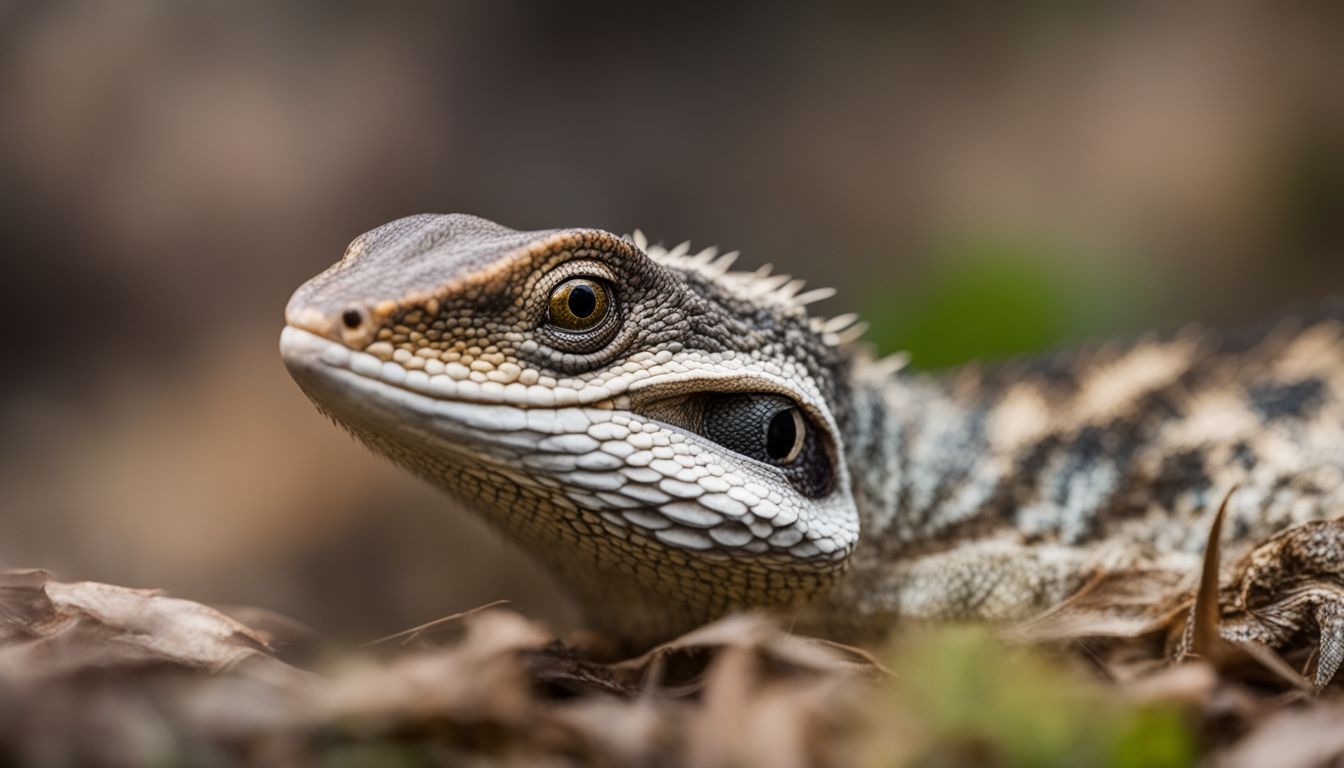
Conclusion
In conclusion, while most lizards in Florida are harmless, there are a few species that can be poisonous. It’s important to learn how to identify these harmful lizards and understand the potential risks they pose to humans.
By taking precautions and being aware of our surroundings, we can coexist safely with these creatures and appreciate the benefits they bring to our ecosystem. Stay informed and stay safe!
FAQs
Are all lizards in Florida poisonous?
No, not all lizards in Florida are poisonous. Most species of lizards found in Florida are harmless and pose no danger to humans.
How can I determine if a lizard is poisonous or harmful?
In general, the coloration and pattern of a lizard can be indicators of its venomous or harmful nature. It’s best to avoid touching or handling any lizard species that have bright colors, spines, or other noticeable markings.
What should I do if I encounter a potentially dangerous lizard?
If you come across a potentially dangerous lizard, it’s important to remain calm and keep your distance. Do not try to handle or provoke the lizard. If necessary, contact local wildlife authorities for guidance on safely dealing with the situation.
Are there any specific types of lizards in Florida that I should be cautious about?
Yes, there are certain species of lizards in Florida that are considered harmful or invasive, such as the Cuban brown anole and Nile monitor lizard. It’s important to familiarize yourself with these species and take appropriate precautions when encountering them.

